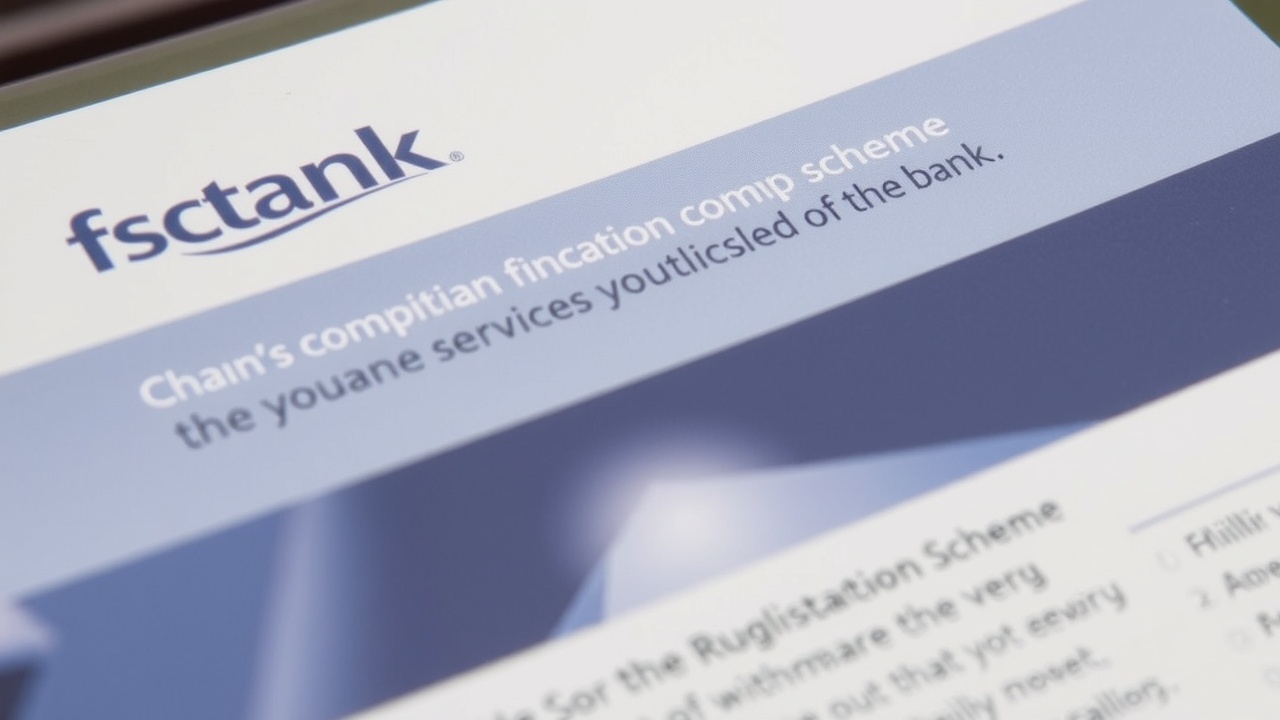
Customers are compensated under the Financial Services Compensation Scheme (FSCS) in the event that a financial institution closes
What is the upper limit and how does the plan operate?
If a bank, building society, insurer, or stockbroker fails, your investments and savings are safeguarded by the Financial Services Compensation Scheme (FSCS).
Customers will be happy to learn that there are plans to increase the deposit protection limit, as there is a cap on the amount that the FSCS will pay out.
The maximum compensation in the event that a savings bank, building society, or credit union goes bankrupt has been raised from 85,000 to 110,000 by the Prudential Regulation Authority (PRA). The increase would take effect by the end of 2025 if it were approved.
The plans to raise the savings cap are examined, and the operation of the FSCS is explained.
FSCS: What is it?
The financial services industry provides funding for the independent, free program, which was established by the UK government in 2001.
Customers of banks, building societies, credit unions, pension providers, investment firms, and insurance companies are intended to be safeguarded in the event of a collapse by this safety net.
How do savers use the FSCS?
You are immediately covered by the FSCS compensation plan if you have funds in an approved bank, building society, or credit union in the United Kingdom.
In most cases, you will receive up to £85,000 in compensation in the event that the institution you are using fails. Holding a joint account doubles the protection to £170,000.
You might be compensated for losses of up to one million dollars for six months after you first deposited the money if your bank balance is momentarily high (for instance, from the proceeds of a house sale or receiving an inheritance).
The fact that these restrictions are applicable "per financial institution"that is, to various bank and building society brands operating under the same licenseshould not be overlooked. For instance, HSBC and First Direct are covered by the same FSCS coverage limit since they both hold the same bank license.
For example, if you have a regular saver account with First Direct and a cash ISA with HSBC, your total compensation for funds held in both banks will be limited to 85,000.
Even though this cap will cover the majority of people, you might want to spread your money across accounts at multiple financial institutions if you have a sizable cash reserve.
Although they are comparatively uncommon, bank and pension provider failures do occur. Your chances of losing access to your money for any reason will be decreased if you have two accounts with two different providers.
Over the last three fiscal years, the FSCS has compensated depositors with 10.1 million, primarily for small credit union failures.
In relation to deposit failures during the 2008 financial crisis, the FSCS has paid over 20 billion since its founding.
If the business is authorized in the UK (and thus covered by the FSCS), you can verify this by looking through the Financial Services Register.
For investors, how does the FSCS operate?
If stockbrokers, financial advisers, and investment firms cease operations and there is a deficiency in client assetsthat is, money that ought to be in a segregated account but isn'tthe FSCS will reimburse up to £85,000 per client (not per account) to cover the remaining amount.
Keep in mind that different product types have different levels of FSCS protection, and not all investment products are covered. If your product is covered, you can check using the FSCS investment protection checker.
For instance, you ought to be eligible for an additional 30,000 from the FSCS if a stockbroker owes you 70,000 but you only receive 40,000 back. However, if you receive 40,000 for each of your two accounts with the same broker, which hold 70,000 and 120,000 respectively, the FSCS will only pay you a maximum of 85,000, leaving you short by £25,000.
You have the option of filing an FSCS claim either before the insolvent company makes any payments or after you receive some money back from it. The FSCS assumes responsibility for your claim against the business when you file one.
Other nations have different laws. The Deposit Guarantee Scheme (DGS) in the EU insures bank deposits up to 100,000.
The Federal Deposit Insurance Corporation (FDIC) in the United States insures savings up to £250,000, but it excludes other financial products like annuities and insurance. The Securities Investor Protection Corporation (SIPC) provides protection for US investments.
Other financial products covered by the FSCS.
Although the FSCS is best known for filling in for banks and investment firms that fail, it also offers compensation to clients of a variety of financial services.
This includes everything from life insurance and funeral arrangements to mortgages and SIPPs (self-invested personal pensions).
Is the 85,000 limit going up?
The deposit protection limit would be increased from 85,000 to 110,000 by the PRA.
This is the highest sum of money that the FSCS normally safeguards in the event that a depositor's bank, credit union, or building society goes bankrupt.
The proposed increase accounts for inflation since the last time the 85,000 threshold was raised, which was in 2017.
The cap on some short-term high balance claims is also going to be raised from one million to one and a quarter million.
A consultation regarding these modifications has been initiated by the PRA. Should the plans proceed, companies that fail starting on December 1, 2025, will be subject to the new cap.
According to Which? director of policy and advocacy Rocio Concha, "It makes sense to raise the deposit protection limit in order to boost consumer trust in the financial services sector.
Can you receive compensation from FSCS?
You must fulfill specific requirements established by the PRA and the Financial Conduct Authority (FCA) in order to be eligible for compensation under the FSCS.
The eligibility requirements are summarized as follows.
For you to be compensated for a claim against the firm, it must be a failed firm. At the time you conducted business with the firm, it must have been approved by the FCA, PRA, or any predecessor to these regulators. For a court decision to be in your favor, you must have experienced a monetary loss and the firm must owe you a "civil liability"such as negligence or a violation of specific rules. The requirements vary slightly for each product. Find out the compensation limits and whether your financial product or service is protected.
How to submit a claim for FSCS benefits.
The first step in determining whether you have a compensation claim under the FSCS against a failed financial services company is to use the online tool provided by the FSCS to determine your eligibility. It is reasonably easy and free.
The next step is to collect all required paperwork. The FSCS website lists the documents needed for investing, mortgage advice or endowment, pensions, PPI, structured deposit, and whole-of-life insurance claims, among other types of claims.
In order for the compensation to be deposited into your account, you will typically need two forms of identification, documentation pertaining to the product or service you are claiming for, and your bank account information.
You will need to present proof of any of the following that pertains to your case if you are making a claim under the temporary high balances rule.
A will, a court order, a conveyancer, a mortgage provider, a former employer, a pension trustee, a receipt or agreement for a property sale, a court judgment, a letter from an insurer about an insurance payout, court orders, probate or letters of administration, death certificates, marriage certificates, Land Registry, and HMRC records.














Leave a comment on: What is the FSCS, and how is your investment and savings protected?